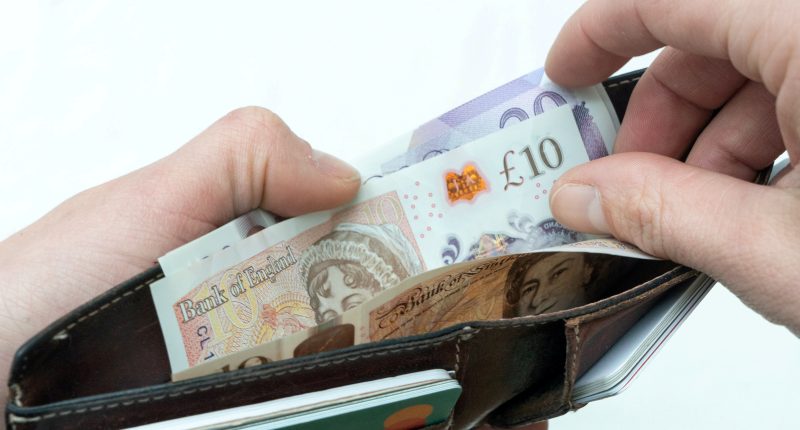NEARLY half of Brits have financial regrets – with not saving more when they were younger topping the list.
A study, of 4,000 adults, also found a third wish they had started saving for a comfortable retirement earlier in life, with this rising to more than half among over 55s.
While 28% regret not educating themselves more about money over the years.
And 27% bemoan not planning their future finances more – and focusing so much on their short-term needs and wants.
One in four admitted not investing money was an error of judgment, and 23% would like a redo on periods of their lives, when they lived beyond their means.
But 41% believe they are not yet financially comfortable as a result of these money missteps, and 37 per cent feel they have missed out on opportunities to grow their money and build wealth.
Read more money stories
While 27% claim their financial regrets have negatively affected their mental health.
Brian Byrnes, head of personal finance at saving and investing app Moneybox, which commissioned the research, said: “The fact that most people never received any financial education and have been left to figure out how to manage their money and plan for the future through trial and error, is just not right.
“And with this in mind, it’s no surprise that so many of us only realise our missed opportunities after the fact.
“Whatever financial missteps you might have taken, this research shows you’re probably not alone in having made them.
Most read in Money
“It’s important to look at these realisations as lessons and a wake-up call.
“Try to remember it is always possible to improve your financial situation with the right guidance and support.”
The study also found 53% of those who have made a past financial faux pas put it down to simply being young at the time and not considering their future properly.
However, the research, conducted by OnePoll, also found 34% feel their issues arose simply because they never received financial education.
A similar number (32%) said they just didn’t have a good understanding of how to manage finances or improve their financial situation.
While a quarter believe a lack of financial confidence resulted in them making decisions they now regret.
As a result, 20% feel they would have been better off if they knew who to ask for better advice or guidance.
Brian Byrnes, from Moneybox, added: “The financial services industry has evolved a lot in recent years and there is now much more information freely available to help people who want to learn how to manage their finances and build wealth for the future.
“As a former financial adviser, I firmly believe that knowledge is power when it comes to your finances and it’s so important to spend some time every month, getting to grips with your financial situation.
“The most notable difference between those who are financially confident and those who are not is time spent learning about financial matters.
“So setting aside at least 30 minutes every week, to review your budget or research the best financial products for your needs or make a plan to help you achieve an important financial goal, will make a huge difference to your confidence and your financial position over time.”
Top 10 financial regrets
- Not prioritising saving more when you were younger
- Not starting to save for a comfortable retirement earlier in life
- Not educating yourself more on financial matters
- Not taking time to plan for your future finances, only focusing on short-term needs and wants
- Not making and sticking to a budget
- Not investing
- Taking on more debt than you could afford
- Living beyond your means for too long
- Not buying a house earlier in life
- Burying your head in the sand when it came to finances
Seven tips to help you turn pennies into pounds

You’ve been saving your money all wrong, here’s our top tips
- Clear your debt
Before you start saving money, it’s best to get rid of any expensive debt.
This is because interest racks up on loans or credit cards at a faster rate than you can earn interest on a savings account.
- Set a goal
It sounds obvious, but saving money is a lot easier when you know what you’re working towards.
Whether it’s a new laptop, a summer holiday or your retirement, it’s important to have a goal in mind.
Find the best savings account
Interest rates are very low, which makes it harder to grow your money – so you really need to find the best savings account you can.
- Take on a savings challenge
A money savings challenge is a great way to really kickstart your habit.
The small amounts saved each day can really add up over time.
- Automate it
It’s easy to forget to move your money to a savings account each month if you have to do it manually.
Set up a monthly direct debit from your bank account to your savings account, that way you don’t have to worry about or risk putting it off.
Round-ups are a good idea if you do lots of little transactions too.
Some banks and apps will automatically round up your purchase to the nearest pound and transfer the difference to a savings accounts.
- Stick to your budget
Tallying up your spending is a must for anyone looking to get into good money habits.
Add up what your monthly outgoings are on essentials, and then work out where you can cut back.
- Invest if you can afford it
Once you’ve cleared your debt and built up a rainy day fund of savings you can access in case of emergency, you might want to consider investing as a way to grow your cash more quickly.
Investing isn’t just for the wealthy – we found that you could retire a millionaire by investing just £78 a month.
How to find the best savings rates
If you are trying to find the best savings rate there are websites you can use that can show you the best rates available.
Doing some research on websites such as MoneyFacts and price comparison sites including Compare the Market and Go Compare will quickly show you what’s out there.
These websites let you tailor your searches to an account type that suits you.
There are three types of savings accounts fixed, easy access, and regular saver.
A fixed-rate savings account offers some of the highest interest rates but comes at the cost of being unable to withdraw your cash within the agreed term.
This means that your money is locked in, so even if interest rates increase you are unable to move your money and switch to a better account.
Some providers give the option to withdraw but it comes with a hefty fee.
An easy-access account does what it says on the tin and usually allows unlimited cash withdrawals.
These accounts do tend to come with lower returns but are a good option if you want the freedom to move your money without being charged a penalty fee.
Lastly is a regular saver account, these accounts generate decent returns but only on the basis that you pay in a set amount each month.
READ MORE SUN STORIES
Do you have a money problem that needs sorting? Get in touch by emailing [email protected].
You can also join our new Sun Money Facebook group to share stories and tips and engage with the consumer team and other group members.









